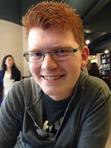Tommy Collison's Blog, page 4
January 6, 2014
Firsts -- an update
This is a post of firsts — my first post in 2014, my first post in this new blog design, and the first post on the new domain. I chose 42409 as a website name, taking the number from a lyric of Adam Pascal’s, a singer-songwriter I’m particularly fond of. His song, Book of Endings, begins:
Ice is forming around her broken heart /
Four this morning, she wrote him one last time /
Journal entry number 42409 /
'He just needs some /
Well, he needs a bit more time’.
The lyric stuck in my head, but evidently not in many other people’s — I used get a lot of complaints that people couldn’t remember the website address. That, coupled with a belief I heard attributed to Paul Graham that you don’t own a brand until you own its .com, compelled me to set tommycollison.com up as my primary domain.
Right, that’s enough housekeeping — on to some news. I’m back in NYC after spending Xmas at home with my family back in Ireland. NYU doesn’t officially start back for me until January 27, so I’m looking forward to having some time in the city without classwork and assignments to do. With the time free, I find I’m reading and writing a lot more. You can see what I read in 2013 here, and I’ve set myself a GoodReads challenge of reading 60 books this year. At the moment, I’m about halfway through Tim O’Brien’s “The Things They Carried”, and only a handful of pages from fining Daniel Domscheit-Berg’s “Inside Wikileaks”. I most recently read Harper Lee’s “To Kill A Mockingbird”, which is one of the best books I’ve read in a very long time. I’ll try to blog some longer thoughts about each of these books over the coming days.
In terms of writing, I’m about 20,000 words into a story idea that’s been bouncing around in my head since mid-Autumn. It’s an idea I had reading about the Wikileaks saga and the Snowden affair (as I saw it titled somewhere recently), and I’m hoping to have the story, which has no projected word-count, edited and posted here before the end of the month. Stay tuned — I have a handful of ideas that I want to get written in some shape or form before the Spring semester starts.
Speaking of the Spring semester, I’m quite excited to start it. My modules are essay-writing, Spanish, international politics, and a class described as “understanding the natural world and the relation of humans to it”, drawing from literary, philosophical, and scientific texts. On paper, my undergrad major is still Journalism, but I’m not sure how long I’ll stay with that decision. Even if I did want to change it, though, my Spring courses wouldn’t change. For this reason, I’m holding off thinking too deeply about what I want to major in until it becomes an immediate decision. (I don’t have to officially declare a major until the end of my second year here.) Other contenders might be politics, English, or history.
One thing I am aware of is that journalism is a skill-set as opposed to a body of knowledge like history is — perhaps there’s something to be said about getting an undergraduate degree in a defined body of knowledge. The advice I’ve gotten is that I should inform my writing (with history or politics, for example) rather than learn how to write (which is how I’ve heard a journalism degree described. An obvious oversimplification, but there’s probably some truth in it). It’s worth noting here that international politics in the Spring will be the first politics class I’ve ever taken. I could write a blog in the summer about how politics would be an awful fit for me, and that’d be okay — your freshman year’s for academic experimentation.
As I write this, I’m sitting in a friend’s apartment reading "Inside Wikileaks" and listening to music — I’m still as big an alt rock junkie as ever. After my first college semester, I feel that I’ve earned the right to take a couple days relaxing, reading, and writing, and that’s exactly what I’m doing. Temperatures have been reasonably mild in NYC over the last few days, but are set to drop to 11ºF/-12ºC in the wee hours of tomorrow morning. The storms in the US, particularly the midwest and northeast, are apparently making headlines back in Ireland — I’m more concerned for my home country though, considering that it’s been hammered by storm conditions for weeks. I’m enjoying NYC in the relative quiet of January: I thought that Greenwich Village wouldn’t feel the same with NYU closed for the Xmas break, but New York (like other cities) exists in many different forms — I’m just seeing its quiet side right now.
December 20, 2013
First College Semester
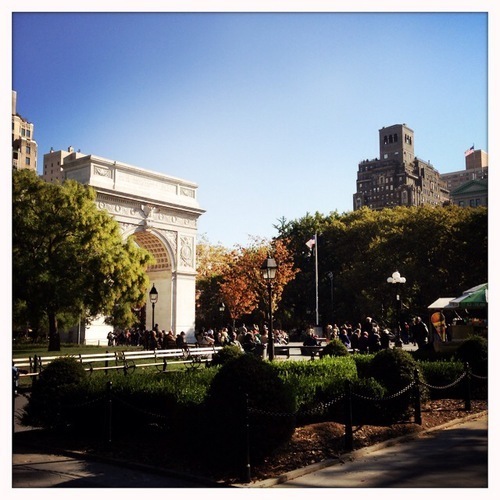
In one of the orientation events at NYU this August, we were invited to write letters to ourselves that we’d read again at the end of the semester. As I scanned mine last week, a to-do list jumped out at me:
Go to class.
Do new shit.
I’m pretty sure I copied the list from an AskReddit college advice thread -it seemed pretty good advice at the time- and it’s as good a place as any to start reflecting on my first college semester. I want this essay to do two things. I want to look back on my first semester, and I want to write the essay I wish I’d read during the summer, something of a here’s-what-to-expect.
I managed to achieve perfect attendance for my four classes this semester, so at least I fulfilled the first requirement I set myself way back in the summer (it feels like forever ago). I got the impression, both during college and beforehand, that it’s exceedingly rare to make it to all your college lectures. (Case in point: after tweeting about full attendance, one reply to me simply stated “TEACH ME YOUR WAYS.”) From what I can tell, I was mistaken in originally thinking this was something uniquely Irish — when I asked other NYU students, no other student reported going to all of their classes.
I found it interesting that, over lunch the day before my semester finals started, a friend outside NYU expressed surprise that I considered full attendance to be something of an achievement. You’re a studious guy, he said — you do the coursework, and you’re not going to skip classes to hang out with your friends. It’s true that I’m not that kind of guy, but I was also lucky that forces outside my control (sickness, inclement weather) didn’t affect me. I doubt you can have full attendance without both of the above.
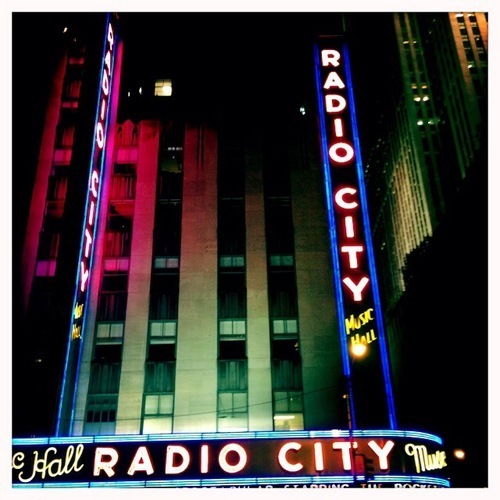
A decent follow-up question here would be how important I think perfect attendance in college is. Obviously, I thought it was during the semester, since I kept going to class, but what do I think in hindsight? Well, firstly, I think it’s worth noting that for my classes, attendance was usually worth a percentage of my grade — 10% in one case, 15% in another, and 20% in my New York literature seminar. Often, attendance and class participation would be linked, and in more than one class, sustained absence was grounds for failing the class. To an extent, so, it doesn’t really matter what I think about whether attendance is important — NYU takes it seriously.
Even so, I don’t think I could imagine a scenario where I think it’d be better to skip class. While I was in high school, I was constantly seeking opportunities to study at home. There are a couple differences between high school and college, obviously — college classes are much more concentrated (you have less class time to cover a larger amount of more complex coursework) and also set in longer blocks: my high school classes were 40 minutes long, where it was sometimes difficult to get a large chunk of meaningful work done. My lectures in college were all 75 minutes, and so I felt I got a lot more meaningful work done in college than high school.
In primary school, I was told that if you learn something incorrectly the first time, such as a spelling error, it takes 27 repetitions for the human brain to unlearn the error and learn the correction. I would extend this factoid to college and say that it’s harder to catch up on the material covered in a college lecture than it is to go along to the lecture. Whenever I was tempted to skip a lecture, I reminded myself that I was probably going to have to spend 1.5x or 2x the time covering the concepts sometime else — why not stick to my timetable in the first place?
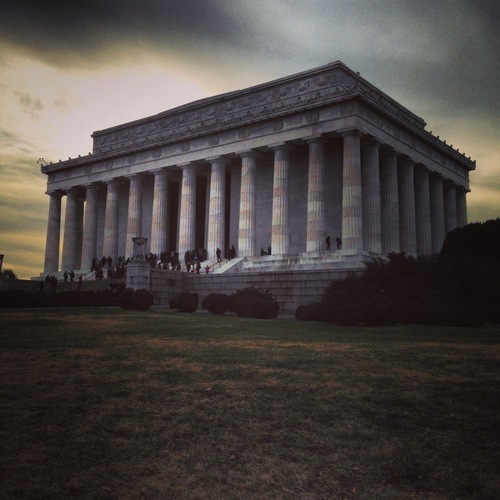
The temptation to skip lectures is a good way of segueing into the second half of the list I started this essay with. Admittedly, it’s hard to know whether I’ve been successful in ‘doing new shit,’ but there are a couple of interesting points that seem to point to a positive outcome.
I learned very quickly that life is full of opportunity costs; college life especially so. I learned of the term ‘opportunity cost’ in high school economics first, but it’s a widely-applicable principle. If I have $10 to spend on either a CD or a book, and I choose the CD, the book is said to be my ‘opportunity cost’ — what I had to do without in order to buy what I did. It’s also referred to as the cost of the next best alternative. Since time, like money, is a finite resource, I can have opportunity costs there, too — time spent doing laundry is time spent not doing anything else. The concept of opportunity cost is why so many productivity hacktivists encourage you to read or study on your morning commute — they advocate reclaiming wasted time (doing nothing on the subway) to be used productively.
College experience is built of two things: what happens in college, and your life outside college. I made a huge effort to have a life that existed outside of NYU, and I think it was definitely worth it. NYC certainly lends itself to this effort, and I think this definitely helped me reach my perhaps ill-defined goal of “doing new shit.” Without going through my calendar with a toothpick, I think I caught 3 shows, met a dozen or so friends who were passing through NYC, and had countless experiences that, while they may not be NYC-specific, are certainly large city- or perhaps America-specific.
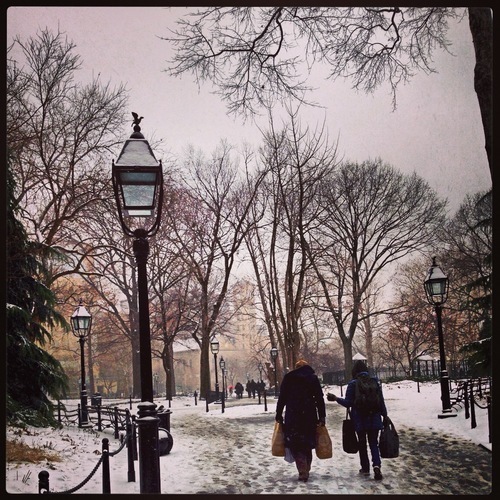
It should seem obvious to anybody who’s been in college (or even anybody who has the potential to do interesting things, especially at night) that sleep is the ultimate opportunity cost. Early in September, a friend of mine was playing a concert in 54 Below, a charmingly intimate cabaret ‘supper club’ in Midtown. The concert was slated to start at 21:30 on a Sunday night. I saw Anthony Rapp do some of my favorite tunes (doing particularly good renditions of Losing My Religion and Falling Slowly) and got home just after 1am on Monday morning, acutely aware that I had a 9:30 Spanish lecture in a couple hours. (It’s worth noting here that I’m pretty wimpish when it comes to sleep, and I’m a zombie for the day if I get less than 7 hours sleep on any given night.) There was a trade-off involved in going to that concert (I was tired all next day) but it was worth it, and college is a series of these kinds of trade-offs.
This idea of opportunity cost was probably the biggest thing I didn’t know going into college, even though in retrospect it seems pretty obvious. I feel like living in Manhattan does nothing to help this problem (not that it’s a problem — it’s a challenge), since the city is full of amazing events and places to hang out. Anthony Rapp doesn’t do several concerts a year in Syracuse, after all. (Syracuse University in upstate NY was the first US college I was accepted into — I chose NYU in part because NYC struck me as a more exciting place to spend 4 years, although Syracuse does get an honorable mention for being the snowiest city in the contiguous United States.)
When making conversation with people, I often remark on the fact that I moved out of my parent’s house for the first time AND began living in Manhattan in one step, both of which are fairly big changes in and of themselves. In hindsight, I don’t actually think it’s as big a move as I thought. More often than not, I was reminded how, even in New York, a lot of what I did could have been done anywhere. I was balancing a budget, doing laundry, getting lost, using public transport, going to class, studying, spending time with friends. None of these are NYC-specific in and of themselves, although having Manhattan as a backdrop certainly does change them.
This is one of the things I wish I’d known — college in NYC is a heady experience but at the end of the day, college is college. The tasks and pastimes mentioned above are the same whether I’m in NYU, Syracuse, or Trinity College Dublin.
Overall, I had an absolute blast during my first semester of college. My anxieties over the summer of being the friendless Irish kid proved themselves to be ungrounded and living on your own provides you with an indescribable sense of joy that stems from the autonomy, and studying what you’re interested in (as opposed to what your high school curriculum dictates) renews your love of learning like nothing else.
As I write this, it’s December 17, and I’m somewhere off the coast of Newfoundland flying home for winter break. The deadlines for regular applications for US colleges is approaching, with most of them falling on or around New Year’s Day. I’m probably going to spend a lot of this break thinking about where I was a year ago and how different I am now. I’m incredibly happy with how the last 12 months have turned out. Bring on next semester, next year, and the next batch of adventures. My advice for next year’s freshmen? Go to class. Do new shit.
December 7, 2013
Latest NSA Revelations
FBI’s search for ‘Mo,’ suspect in bomb threats, highlights use of malware for surveillance
The most powerful FBI surveillance software can covertly download files, photographs and stored e-mails, or even gather real-time images by activating cameras connected to computers, say court documents and people familiar with this technology. [...] “The suspect could be down the street or on the other side of the planet,” said Jason M. Weinstein, a former deputy assistant attorney general in the Justice Department’s criminal division who is now a partner at Steptoe & Johnson. He said he had no direct knowledge of the investigation of Mo. The case, however, “raises the broader question of whether the rules that exist now are adequate to address the problem.”
The bolded text in the block-quote about, to me, is the most interesting/worrying part of the allegations. We’re totally unprepared for the legal implications of the current NSA surveillance. We have to have a discussion about the legal ramifications and future boundaries soon, and I’m not sure who will or can frame that discussion.
Mandela Obituaries
Generally disappointed with the calibre of Mandela obituaries, especially from the New York Times.
— Tommy Collison (@tommycollison) December 6, 2013
I was asked to expand on that tweet to a friend. I certainly couldn’t do a better job when it comes to writing an obituary, but I’m surprised and disappointed at the tack the obituaries I’ve read have taken, especially the New York Times (NYT).
Mandela was undoubtably a revered leader and humanitarian, and an astonishingly astute politician, but he organized attacks that would unquestionably be defined as terrorism if they happened today, something that the NYT seems to gloss over. He was on the US’s terrorist watch-list until 2008.
One of the things I hate most about American media —I see it mostly in cable news more than print journalism— is that journalists/anchors let sources/interviewees say things that they know aren’t true, or know they should push the source/topic further, but don’t do anything. Take the NYT obit:
Mr. Mandela’s exploits in the “armed struggle” have been somewhat mythologized. During his months as a cloak-and-dagger outlaw, the press christened him “the Black Pimpernel.” But while he trained for guerrilla fighting and sought weapons for Spear of the Nation, he saw no combat. The A.N.C.’s armed activities were mostly confined to planting land mines, blowing up electrical stations and committing occasional acts of terrorism against civilians.
The use of ‘occasional’ seems to be trying to excuse the fact, or at least glean over it. Don’t forget that Mandela headed Spear of the Nation for a time, which carried out attacks on, and even killed, civilians.
TL;DR — The NYT and others are white-washing Mandela, presenting him as if he were the Dalai Lama or the Pope; while he was unquestionably an excellent humanitarian, it’s wrong of the NYT to gloss over his occasionally-bloody past. It's also worth noting that his past does not in any way detract from his humanitarianism.
At the end of the day, I think this NYT commenter nailed it: “The great human story of the 20th century will be the rise of human rights, and his is a central part of that story.”
December 3, 2013
I became aware of the truth.Before that I was happy. Does...
I became aware of the truth.
Before that I was happy.
Does a good person think of others?
I sat in the hospital,
Everything was sterile.
That proved they were right.
If I wasn’t here, though,
Wouldn’t I be with you?
I think of you.
If I felt differently, I would call.
I could, but I won’t.
I used to see you at the movies.
Last night, an orderly woke me up.
In my dream, you were there.
The dream doesn’t match the reality.
December 2, 2013
2013 Reading List
Since I'm my mother's son, I'm a list nerd. My brother, John, just posted his book recommendations of 2013, and I decided to follow suit. I find this especially interesting since John mostly reads nonfiction and I almost exclusively read fiction.
Using his notation, which is in turn modeled on Aaron Swartz's, books I highly recommend are in boldface.
Some observations:
I read 35 books this year, or a book every week and a half. Of those, 5 were rereads. I'm a little surprised I read so many books, considering I did my Leaving Cert. this year.Of those 35, I marked 17 with a star, indicating that I really enjoyed the book. I marked 2 with a minus sign, indicating that I finished the book wishing I hadn't wasted the time. As I've said before, I'm a little skeptical of my marking system; I think I might be biased into thinking I enjoyed books more so that I feel like I'm not often wasting my time.The list in full can be seen on my Reading Log. Highlights are below.Les Misérables, by Victor Hugo.
I haven't read too many of the classics, but this is one of my favorite books overall. You're most likely more familiar with the musical and/or movie versions, but the book is much better -- for one, there's more subtle drama and less comic relief. If you have a vague idea the story beforehand, I think you'll enjoy it all the more. Because it's so long, and because it's free, I recommend getting the Kindle version.
Will Grayson, Will Grayson, by John Green and David Levithan.
I was ultimately underwhelmed by this. If you're looking for an introduction to John Green, check out The Fault in Our Stars and give this one a miss.
I bought this wondering if Dan Savage wrote well outside advice columns. He absolutely does. A poignant story that isn't saccharine.
How To Win Friends and Influence People, by Dale Carnegie.
Underwhelmed. Could impart the same lessons in a quarter of the length.
Little Brother, by Cory Doctorow.
I read this first in the summer of 2008. I reread it this February, and I imagine if I reread it now it would be more culturally relevant still. Probably the closest thing we have to a contemporary 1984.
The Girl With The Dragon Tattoo, by Stieg Larsson.
Also a reread. Excellent thriller. Bring on an airplane, but don't bother reading the last two books in the series unless you really enjoyed this first book. As for me, it's a book about a journalist and a hacker -- how could I not love it?
Here's the Deal, by David Leonhardt.
I remember reading this and learning from it when I read it back in April, but I can't remember any of the wisdom imparted now in December. Make of that what you will.
The Ocean at the End of the Lane, by Neil Gaiman.
Excellent introduction to Neil Gaiman. Not too long, either.
The Great Gatsby, by F. Scott Fitzgerald.
Like John, I read Irish literature rather than what I call modern American classics like Gatsby, and, like him, I'm trying to rectify that now. As good as everyone tells you it is. Read before seeing the movie.
Close to the Knives, by David Wojnarowicz.
One of the first books I read for college. Thoroughly enjoyed. Read for an acerbic sense of New York in the 80s and 90s.
Washington Square, by Henry James.
Thoroughly enjoyed, also for class.
The Grapes of Wrath, by John Steinbeck.
Another of my American literature catch-up. Descriptions sharp, dialogue masterful, plot compelling.
Harry, A History: The True Story of a Boy Wizard, His Fans, and Life Inside the Harry Potter Phenomenon, by Melissa Anelli.
I don't remember if I overheard this being called 'the eighth Harry Potter book' or if I came up with the term myself, but if you went into mourning upon the release of Deathly Hallows, this is both an excellent continuation and summation of the love affair so many of my generation (and beyond) went through with Harry Potter.
The Catcher in the Rye, by J.D. Salinger.
Another American literature catch-up. I enjoyed this, but I think I should reread it to get the full punch. I didn't like Holden, I don't know why so many of my high school friends did.
November 29, 2013
Adopting A Country
As an international student, I'm often asked what my plan is once I graduate NYU; my visa only lasts until September 2017. I'll be 23 then, which is about when I should have an idea what I want to do with my life.
Part of me, a part which fluctuates in size, really wants to stay in the US.
It fluctuates because emigration is a choice of two sides: one, why do you leave your home country, and two, how did you come to choose your adopted country?
I'll explore my reasoning for emigrating (a word that still feels weird to me) in another essay, but today more than anything else, I'm thinking about the second question -- my choice of America. I see something like the death count on Black Friday and I question what America is today; how it's seen abroad, and what it stands for. There's really no denying how fucked American consumerism is; how wrong.
It says a lot when a country adopts you, even temporarily. Adopting a country, I feel, says a lot more.
November 8, 2013
Notion-y
I obsess over things. Book things, internet things, even people things. When I was a kid, my mum even had a phrase for it: he's notion-y -- (n) prone to notions; obsessive
Like most things in life, being obsessive can be a force for good or evil. Obsessive people finish books in one sitting, they clean the house in one go (although I was never that strain of obsessive...), and when they decide to exercise, they really, if you'll excuse the sports pun, go the whole nine yards.
Spotted during Berlin run -- Dad's fitness app or air miles account? (The 554 are on consecutive days.) pic.twitter.com/YCT5uN8Bsx
— Patrick Collison (@patrickc) October 28, 2013
I got my notion-y-ness from both sides of the family, but I think it mostly manifests itself in my Dad. He's been running at least 5 KM each day for 564 consecutive. Obsessive? A little bit.
But that's a good thing to inherit. I'm currently in NYU, where I get free access to their insanely well-equipped gym facilities, a 9-minute walk away from my dorm. Obviously, I want to take advantage of this fact, but I've always found the conventional exercise wisdom of '30 minutes of strenuous exercise 3 times a week' to be unhelpful -- it's hard to allocate exercise to 3 specific days, because then it's easy to keep putting it, at which point you have to scramble to make it up or let it fall my the wayside.
That's why it's easier to do something like exercise daily -- it becomes as habitual as brushing your teeth. I've managed to stick with it for 7 consecutive days now (6 swimming and 1 exercise bike session), and they say that 3 weeks is how long it takes a habit to form, so I'm writing about it now so that y'all can berate me if I fall off the wagon.
November 5, 2013
What's In A Name?
I'm in the process of setting up tommycollison.com as the primary domain for this website. I chose 42409.org back in May, as I was toying with the idea of having a 'brand' of sorts, making 42409 (an admittedly random sequence of numbers) as my brand or trademark. I've since changed my mind -- your name is always your strongest trademark, and you should always seek to capitalize on that.
Because managing domain names makes me want to tear my fingers out, it's going to be a couple months before the registrar allows me to use tommycollison.com as my primary domain. Stay tuned.
College Schedules
It seems strange to be choosing classes for my Spring semester this side of Thanksgiving, but I’m close to cementing my choices. I suppose it's because this is the college system that told me I had a place in April while my Irish friends waited until mid-August to find out where they were going to college: America does things on an earlier schedule in general.
Speaking of schedules, I wanted to write a few thoughts about my daily routine and how it’s been working out for me. If I write them, they become clearer in my head, and use these reflections to better plan my Spring semester.
09:30 Spanish three days a week feels harder than it should. I would categorize myself as a morning person in general, but I haven't enjoyed waking up in the morning to get to this class (perhaps just because I'm a teenager). Once I'm in Spanish, though,I feel great, and the rest of the day is my oyster. If my first class wasn't until 11am, I'd probably bum around and get nothing done in the mornings.
Evening classes are rarely worth it. Earlier in the semester, I took a math class that ran from 18:20 to 19:35. I ate dinner either before or afterwards, but it was still an awkward time and my free afternoons were constrained by having to stick around NYU for that class. I've since swapped into a creative writing workshop from 16:50 to 18:10, which is better, but I'd still prefer my day of classes to finish earlier.
Blocked or spaced? The perennial question college students ask is whether they should schedule their classes back-to-back or with free time in between. Obviously, the answer is 'it depends'. I have a mix of classes, some consecutive, some with 4-hour periods of free time. I think, on balance, I prefer to have spaces between my classes, since I feel like I can keep productivity up better than if a free afternoon stretches out in front of me.
Try keeping Fridays free. I've heard that NYU tries not to schedule class on Friday in order to give students a three-day weekend, and my tentative schedule next semester gives me Fridays off, where my Fall schedule didn't, and I'm looking forward to the adventures having a three-day weekend affords me.

